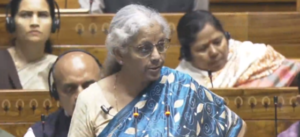In recent years, the surging violence in Ecuador has made international headlines. Initially, coverage centred on frequent prison riots and massacres, which have claimed four hundred lives since 2021. Then, as the turmoil spread beyond the penitentiary system, the focus shifted to gang shootings and executions. Last April, video footage of an attack in the coastal city of Esmeraldas, showing a speed boat full of armed men shooting people on the docks, went viral. The following summer, the presidential candidate Fernando Villavicencio was assassinated and his alleged hitmen were murdered in custody. Now the country is reeling from a 24-hour rampage by drug gangs that culminated in a live, on-air hostage-taking on a TV news set. The incident prompted the newly inaugurated president Daniel Noboa to announce that the country was facing an ‘internal armed conflict’: constitutional parlance for a declaration of war, which essentially allows the military to take over from the police. Ecuador wasn’t always this cliche of a narco-state. It was once hailed as an ‘island of peace’, a security success story. What explains its spiral into chaos?
When Rafael Correa became president in 2007, the national murder rate was 15.9 per 100,000 inhabitants. When he left office office ten years later, it had fallen to 5.8, one of the lowest in Latin America. Several policies lay behind this success. There were, undoubtedly, some elements of a traditional law-and-order approach. The police force grew by 40% and many of its personnel were replaced, partly as a result of a 2010 police mutiny in which the president was held hostage for a day. There were significant wage hikes – the salary of rank-and-file officers was tripled – as well as investment in training and equipment that were often sorely lacking. The policing doctrine was also reformed, with the government driving decentralization and a smaller-scale, neighbourhood approach. Such initiatives played a major role in reducing crime rates.
This was accompanied by broader institutional change: most notably the creation of a Coordinating Security Ministry which oversaw security policy and enabled collaboration between different state agencies, in an attempt to diminish rivalries between branches of the military, police and intelligence services. Correa’s government also invested in a widely celebrated 911 emergency response system, which established call centres in seventeen locations by 2015. The state was, in short, making itself present on its territory: an exercise in Weberian sovereignty unlike anything that had come before.
Perhaps more importantly, the Correa administration implemented a series of ambitious social policies – striving, for instance, to rehabilitate and reintegrate members of Ecuador’s prominent urban gangs. It approached the Latin Kings and Queens, Ñetas and Masters of the Street in an attempt to convince them to ditch crime and enrol in social and educational schemes. The government recognized that these organizations had not yet been inserted into the structures of the larger Mexican-run cartels, and that it could therefore stop the problem from festering. Correa also decriminalized the possession of small quantities of narcotics, as part of a general shift towards treating drug consumption as a public health issue. The aim was to prevent overcrowding in the prison system and allow the police to focus on criminal organizations.
Beyond that, the administration oversaw a marked improvement in living conditions. It doubled social spending, with significant increases for health and education, plus robust welfare programmes and a higher minimum wage. It audited the public finances to suspend or restructure illegitimate debts, renegotiated the country’s oil contracts, and improved tax collection from $5bn in 2007 to $13bn in 2017. By the end of Correa’s tenure, poverty had been reduced by 41.6% and inequality, measured by the Gini coefficient, had fallen by 16.7%. Ecuador was making the kind of social progress that renders drug cartels obsolete.
The concrete effects of Correa’s policies belie the narrative, pedalled by the Ecuadorean establishment, that his ‘soft-on-crime’ tactics are to blame for the current security collapse. Media pundits often suggest that if Ecuador was peaceful under Correa, this was because his government had made a secret pact with the narcos. But this argument is fanciful. The gangs would only have accepted such a deal were they able to increase their drug traffic. Yet even the US Drug Enforcement Agency celebrated ‘the excellent results obtained by the anti-narcotics police’ under Correa, which significantly disrupted the trade. Since he left office, by contrast, drug exports have risen to unprecedented levels.
It was in 2017, under the presidency of Lenín Moreno, that the situation began to unravel. Having styled himself as a continuity candidate, once in office Moreno reversed most of his predecessor’s policies. Under the supervision of the IMF – which extended Ecuador a credit line in 2019, on the condition of a so-called ‘reform program aimed at modernising the economy’ – the social state was rolled back, budgets were slashed and thousands were laid off. The security sector was not spared. The prison system saw its budget cut by 30%, and several ministries, including the Coordinating Ministry of Security and the Ministry of Justice and Human Rights, were closed. The Ministry of the Interior, in charge of the police, was dissolved in a merger, while the main intelligence agency was shut down and its activities handed over to a new outfit run by retired military officers. The White House cheered from the sidelines, applauding Moreno’s ‘transition away from “21st century socialism” to a democratic society focused on the defense of basic rights and a free market economy’.
The outcome was catastrophic. Poverty increased almost 17% by 2019. Once the pandemic hit, there was an upsurge of unemployment and informal work, along with crime and drug trafficking. Gangs used the shutdown to consolidate their control over territory and cultivate ties with impoverished sectors of the population. These internal problems coincided with growing external ones. Following the 2016 Colombian peace process, Colombian drug traffickers began to move their product across the southern border and gained access to Ecuador’s Pacific ports, turning the country into a key transit point for drugs en route to the United States, Europe, Russia and the Middle East. Of course, we can only speculate as to how a different government would have dealt with these incursions. But it is clear that, rather than confronting a state with functional infrastructure and institutions, the cartels merely encountered Moreno’s neoliberal vacuum – and found it easy to fill.
The government of Guillermo Lasso, which came to power in 2021, pushed ahead with the same IMF-supervised austerity and deregulation programme. His administration was weak – his party holding less than 10% of seats in the National Assembly – and marred by corruption. It did not take long for its approval ratings to reach a record low. This resulted in a deficit of leadership and legitimacy that constrained the state’s capacity to fight the crime syndicates, which began to flourish like never before. Still, the government retained the unflinching support of President Biden, who ignored frequent letters from Congressmen warning him about Lasso’s corruption and calling for a DOJ investigation into his hidden assets in the US. Allegations eventually surfaced that Danilo Carrera, Lasso’s brother-in-law and closest business collaborator, was linked to the ‘Albanian Mafia’ drug ring. Soon after, the key witness in the investigation was murdered, and Lasso’s scandal-ridden presidency began to fall apart. In May 2023, a few days before his likely impeachment by the National Assembly, he called new elections and relegated himself to the role of lame-duck president.
Violence meanwhile continued to mount. Prison massacres became commonplace and homicide rates climbed to an astonishing 45 per 100,000, an eight-fold increase since 2017. If Daniel Noboa, the centre-right businessman elected last October, is able to make even modest improvements in the security situation, he stands a chance of re-election when the country returns to the polls next year. His political prospects depend on convincing Ecuadorians that he is the man to defeat the cartels. So far he has tried to project toughness by reversing Correa’s decriminalization laws. He has also announced the construction of ‘maximum prisons’, contracted with an Israeli company, as well as ‘prison barges’ intended to conjure up images of Alcatraz or Devil’s Island. But aside from this, little is known about the specifics of his security plan. His ‘war’ on the gangs will be extremely costly, and the current economic outlook is not favourable. Though the incumbent benefits from relatively high crude oil prices – Ecuador’s main export – he is desperate to secure other sources of funding for his offensive. Judging from the recent decision to increase VAT from 12% to 15%, this could mean further attempts to squeeze the public.
This precarious situation makes the Noboa government highly dependent on the US. Bilateral security ties had already been strengthened over the last five years, particularly under Lasso. In October 2023, a cooperation agreement opened the door for an American military presence in Ecuador, which would be forced to relinquish some of the basic tenets of its sovereignty and grant full immunity to US personnel. (Ecuador’s Constitutional Court has ruled that, since the deal only involves ‘cooperation’ as opposed to a formal ‘alliance’, it does not require legislative authorisation.) This fits into a wider trend. Since the end of the Cold War, the US has used the War on Drugs as a tool to maintain its foothold in the Western Hemisphere and exert its influence over the security apparatus of Latin American states. Having charted a nonconformist course under Correa, Ecuador is now eager to signal its compliance with the hegemon. Another sign of this reorientation is the growing security partnership with Israel, which has managed to coax Ecuador – along with a number of other states in the Global South – into complicity with its expansionist project. As Palestinians are slaughtered in their tens of thousands, Noboa bleats that ‘we’re not going to condemn Israel’s actions nor are we going to take the position Brazil and Colombia did’.
The risk is that the president will now try to assuage public anger over rising crime with a host of repressive and reactionary measures, whose primary casualties will be ordinary Ecuadorians – in particular the impoverished youth of the urban peripheries. We have already seen how, in Colombia, security forces who are under pressure to deliver can sometimes be more concerned with the headcount, or even the bodycount, than with the accuracy of the targets. A renewed crackdown on crime, absent any social programme, could lead to mass arrests, incarcerations and even killings based on little evidence. Another potential threat is the appearance, as in the 1980s, of death squads often acting in cahoots with security forces. Ecuador is swiftly becoming the new frontline of the failed US War on Drugs. It may take years or even decades for the country to rebuild a state that can guarantee peace and security for its people.
(Guillaume Jean Sebastien Long (born 22 February 1977) is a former politician and academic who served as the Minister of Foreign Affairs of Ecuador and Human Mobility, in the government of Rafael Correa. Courtesy: Sidecar, the blog of New Left Review. The New Left Review is a British bimonthly journal covering world politics, economy, and culture, which was established in 1960.)




